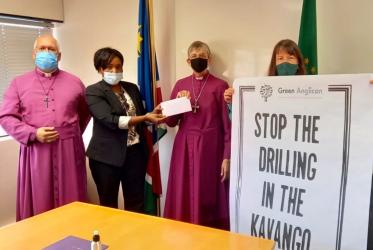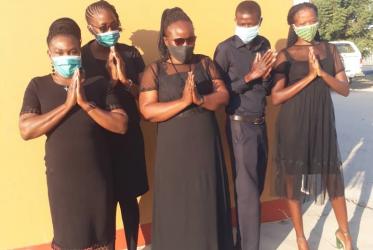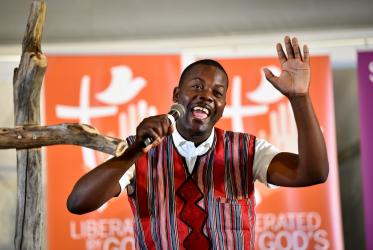Namibia
Namibia was since early times inhabited by the Bushmen, and as of the 14th century by Bantu groups. The territory was attributed to Germany at the Berlin Conference of 1884, as South-West Africa. In 1904, some 50,000 Hereros were massacred by the German colonial army. South Africa administered the territory after World War I, and annexed it after World War II, imposing its apartheid regime. From 1966 to 1988 the South-West Africa People's Organization (SWAPO) under president Sam Nujoma fought a liberation war against the South African occupant. Namibia achieved its independence in 1990 and since then has been governed by SWAPO. Namibia's economy is based on mining and export of diamonds, uranium, and other minerals. Most of the population depend on subsistence farming. Protestant, Anglican, and Catholic missions began working in Namibia in the 19th century. The largest churches are the two Lutheran churches, among the Ovambo people in the north, and among other groups in the centre. These churches, as well as others, supported the struggle for liberation and against apartheid. Several WCC member churches based in South Africa are present in Namibia: the Anglicans, Methodists, United Congregationalists and Uniting Presbyterians. The African Methodist Episcopal Church and the United Methodists are part of the WCC through their church structures in the USA. All of these belong to the Council of Churches, which also includes the Catholic Church. There are various Pentecostal and independent churches. The Evangelical Fellowship of Namibia is affiliated with the WEA.




